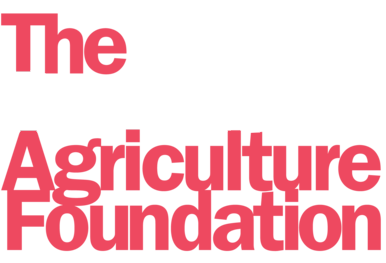Cultivating Gratitude on the Farm
November 25, 2020
By Lesley Kelly, Farmer and Co-Founder of the Do More Agriculture Foundation
Gratitude can be a powerful tool for resilience in the face of uncertainty and stressful situations. Restrictions, fear, isolation and uncertainty around COVID-19, and weather and economic factors on the farm are some examples that can have a significant strain on our mental health. Meanwhile, the benefits of gratitude can help in those stressful situations and enhance areas of our lives, from our professional and personal relationships, our business, to our sense of fulfillment.
Gratitude can be understood as both a state of being and a personal trait. Ultimately, it’s a form of appreciation, whether it’s being thankful for a specific situation or a wider life perspective. With gratitude, people acknowledge the goodness in their lives. In the process, people recognize the source of goodness lies at least partially outside themselves. As a result, gratitude also helps people connect to something larger than themselves as individuals – whether to people, nature or a higher power.
Studies have shown that gratitude is strongly and consistently associated with greater happiness. Gratitude can be an effective tool both on and off the farm because it helps us feel more positive emotions, relish good experiences, improve our health, deal with adversity and build stronger relationships.
People feel and express gratitude in many ways. They can apply it to the past (retrieving positive memories and being thankful for past blessings), the present (not taking good fortune for granted), and the future (maintaining a hopeful and optimistic attitude). Regardless of when, where or the current level of someone’s gratitude, it’s a quality that individuals can successfully cultivate further.
Ways to cultivate gratitude on the farm:
Through acts of kindness: One of agriculture’s strengths is sense of community and helping others during hard times. Random acts of kindness can be small and may only take a moment. For example, an illness or death strikes a family during harvest, a convoy of neighbours and their combines will help get the crop off. Or if fire strikes and burns down a barn, community members will donate supplies, their labour and time and help to rebuild.
By showing gratitude to others: Showing gratitude can provide a boost to your mental health. Saying ‘thank you’ to employees and teammates can inspire them to do the same for someone else. Expressing gratitude to friends and family can often feel more difficult to do. Rather than a simple ‘thank you,’ you can tell someone you are grateful for them doing something specific and what that means to you. This helps you be grateful for what they have done and also the person themselves, growing your sense of gratitude.
By showing gratitude to yourself: Thinking of and sharing positive traits that make yourself unique and special, whether it’s your personality, qualities, your actions can lead to positive self-talk and an increased self-esteem.
By counting your blessings: Pick a time every week to sit down and write about your blessings, which can be done at home, in the office or even in the cab of a tractor, and reflect on what you are grateful for. As you write, be specific and think about what you felt when something good happened to you.
Through meditation or mindfulness: Meditation involves focusing on the present moment without judgement. Although people often focus on a word or phrase (such as peace or ‘I am…, I feel…, I see…”), you can also focus on what you’re grateful for (the warmth of the sun, the drizzle of rain, the breeze, a pleasant sound, etc.).
By turning negatives into positives: One way to practice gratitude is by changing our perspective, or to try to see things through a different lens. It isn’t a cure for negative emotions but helps us be honest with our feelings and what we are going through. Asking yourself questions like:
o Is there a silver lining to this?
o Is there a different way to look at this?
o What can I or have I learned through this?
o What can I be thankful for in this situation?
These questions can help turn the negative into a positive and help us through stressful situations.
It’s not easy to practice gratitude when you don’t feel like it, and it’s perfectly normal that you don’t feel over-the-moon blessed when you’re going through hard times. But you can be sad and disappointed about the problems you’re facing and feel grateful for the things that are going well at the same time. In fact, positive feelings like thankfulness can help you deal better with the inevitable negative ones.
Practicing gratitude may seem elementary, but it is extremely powerful and effective and simple everyday practices can help overcome any obstacles in your way.
If you are looking for more information on resources and support, visit our list of resources.
The Do More Agriculture Foundation is not intended to be a substitute for professional medical advice, diagnosis, or treatment. If you are in crisis, please visit your local emergency department or call 911 immediately.

